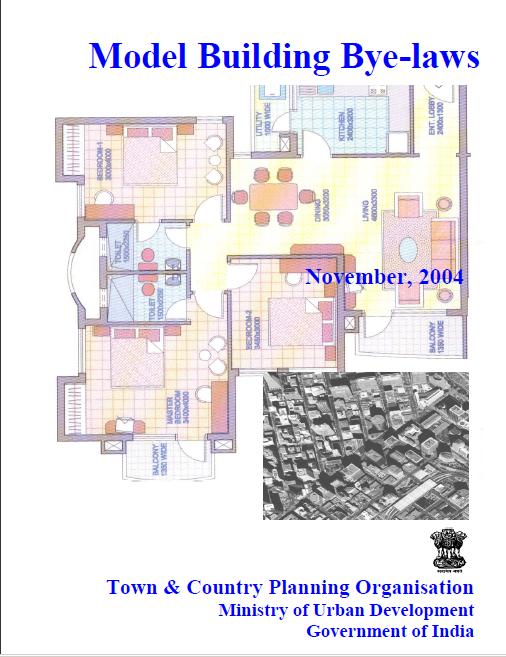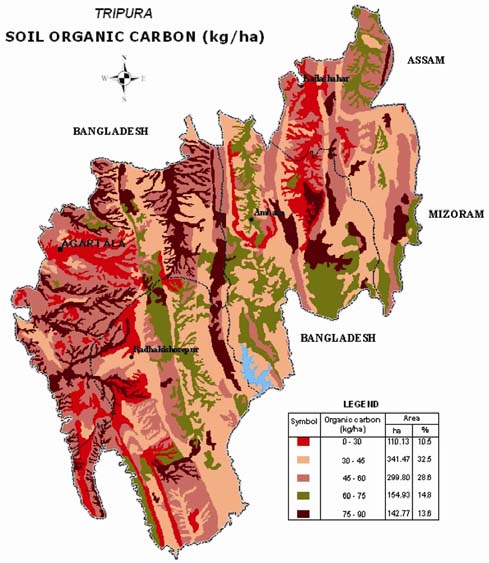Common Property Resources
Research and Action in Natural Wealth Administration (RANWA) Naturalist Scholarship Program 2011 – Apply by 31st May, 2011
Posted on 11 Apr, 2011 06:29 PMRANWA (Research and Action in Natural Wealth Administration) is an NGO having objectives that include environmental research, education and activism.
Under the Naturalist Scholarship Program 2011, it encourages students to apply for the programme by submitting the concept note of the project on the following themes:
- Biodiversity assessment and conservation
- Environmental issues in Konkan
Model building bye-laws, developed by the Town & Country Planning Organisation - Ministry of Urban Development (2004)
Posted on 11 Apr, 2011 03:11 AM Building bye-laws are a set of standards used to regulate various facets of a building everything from its design to its safety features. In these 'Model Building Bye-Laws', the Town and Country Planning Organisation (TCPO) under the Ministry of Urban Development (MoUD) has created a guide for State Governments, Urban Local Bodies, Development Authorities to help them play a more effective role in enforcing the implementation of the master plans.
Building bye-laws are a set of standards used to regulate various facets of a building everything from its design to its safety features. In these 'Model Building Bye-Laws', the Town and Country Planning Organisation (TCPO) under the Ministry of Urban Development (MoUD) has created a guide for State Governments, Urban Local Bodies, Development Authorities to help them play a more effective role in enforcing the implementation of the master plans.
Strain on the marine aquatic environmental quality around Mumbai, owing to indiscriminate release of wastewater – Research reports from the National Institute of Oceanography
Posted on 10 Apr, 2011 07:21 PMThe first report titled “Heavy metal burden in coastal marine sediments of north west coast of India in relation to pollution” by M A Rokade, University of Mumbai uses the data on contaminants including metals in seawater, marine sediments and biota for the Mumbai- Bassein region, a high
Soil information system for resource management in Tripura – A paper in Current Science
Posted on 30 Mar, 2011 09:03 AM In view of the global changing scenario the need of the hour is to produce a fresh group of earth scientists with specialization in soil and crop science, geology and geography with appreciable knowledge in GIS and other i
In view of the global changing scenario the need of the hour is to produce a fresh group of earth scientists with specialization in soil and crop science, geology and geography with appreciable knowledge in GIS and other i
Doctoral fellowship for studies in environment and natural sciences at National Institute of Advance Studies (NIAS), Bangalore
Posted on 29 Mar, 2011 02:03 PM The National Institute of Advanced Studies (NIAS) is an unique Indian institution conducting multidisciplinary research in areas that bridge the gap between the natural and engineering sciences, social sciences, humanities and the arts. A limited number of research scholarships are available in the Institute for bright and committed postgraduate students interested in pursuing independent research across disciplines towards a doctoral degree.
The National Institute of Advanced Studies (NIAS) is an unique Indian institution conducting multidisciplinary research in areas that bridge the gap between the natural and engineering sciences, social sciences, humanities and the arts. A limited number of research scholarships are available in the Institute for bright and committed postgraduate students interested in pursuing independent research across disciplines towards a doctoral degree.
Review of Krishna Water Disputes Tribunal - A report on Krishna river water allocations
Posted on 08 Mar, 2011 04:42 PMThis is a review of KWDT-2 report analysing how it has failed to protect the long term sustainable productivity and ecology of the river basin. It has also failed to understand the water allocations done by previous KWDT-1. KWDT-2 also negated the earlier KWDT-1 allocations at the same time categorically stating that it cannot change water use allocations of previous award.
Emerging policies, creating new commons - A policy forum
Posted on 04 Mar, 2011 02:54 PMThe panel discussion was held to further the idea of commons by extending the idea of autonomy in some of the discussions on commons to the Indian idea of Swaraj or Self-Rule.
Discussions in the panel drew the existing ideas of resource sharing, establishing institutions for governance but extend this to a broader discussion on knowledge and democracy. The panel draws from a recent examination of Gandhi’s Hind Swaraj from a knowledge perspective, an attempt by a network of knowledge commons - the Knowledge In Civil Society or KICS – to posit an Indian science and technology manifesto for 21st-century India and the world. Knowledge Swaraj suggests a new social contract of science in India, based on the principles of plurality, sustainability and justice and a closer look at expertise and knowledge in India. The panel began with a view from civil society on knowledge by M V Sastri looking at Gandhi’s ideas of Hind Swaraj and oceanic circles and the need for the commons debates to relook at ideas from Hind Swaraj from the viewpoint of the present day discourses of human rights also. This was followed by papers that suggest how these ideas can be explored in practice.
Coastal Regulation Zone Notification 2011: Not the end of the road - An EPW paper
Posted on 01 Mar, 2011 11:59 AMIt falls short of offering greater protection to the coastal ecosystem, recognising the inalienable right of fisherfolk to their habitats and providing them with representation in decision-making.
Supreme court judgement on common lands - Jagpal Singh versus State of Punjab (2011) - Guest post by Subbarao Prabhala
Posted on 17 Feb, 2011 12:24 AMIt lays down in no uncertain terms the rights of citizens over the what in the West are called 'Commons' . Even the well-informed among us are not aware of their rights over such public spaces.
The Order states that :




